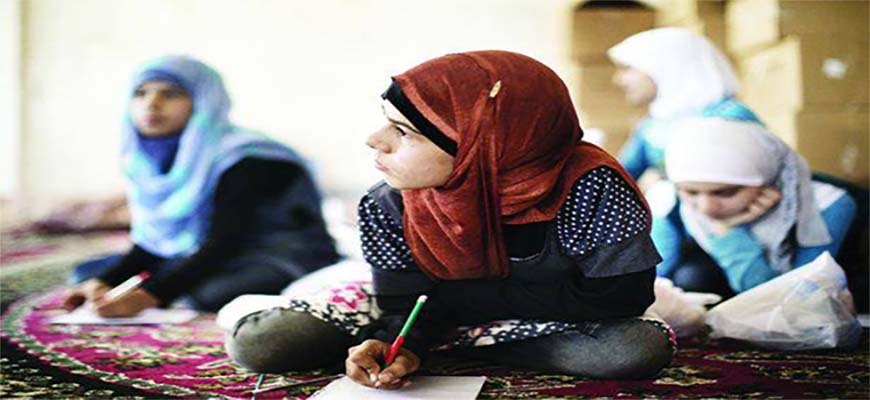
15 May 2015
Confirmed a research by the Center for Information and Research of King Hussein Foundation of Jordan, on Wednesday that there is «an urgent need to make more efforts to protect the Syrian children who separated from their families and living in Jordan from different forms of violence, early marriage, child labour».
The study, which took place in collaboration with the
Zina Jadaan, Responsible department protect women and children in the United Nations High Commissioner for Refugees, she had confirmed earlier that the number of Syrian children refugees who arrived in Jordan without their parents, «was (4.395) children, most of whom came with one of their relatives from the second division», while 17% of them had entered alone without any accompaniment of their relatives.
However, the numbers of UN High Commissioner for Refugees (UNHCR) and the United Nations Children’s Fund (UNICEF) have shown for the first six months of 2014 «recording about (1.367) Syrian children with the UNHCR and the UNICEF, who crossed the border without the company of any of their parents, It has been defined, registered and services were provided to them, this figure reflects a significant increase in the number of children who crossed the border without the company of their parents, compared with previous years».
According to the study, the majority of these children after their arrival in Jordan, they live with one of their relatives as grandparents and then uncles, or elder brother.
The cause of the increasing number of children who cross the border to Jordan without their families, to the desire of parents to enable their children to live in safety and to ensure the provision of basic services to them, as well as to some of the girls were sent to Jordan in order to protect them from sexual violence during the conflict in Syria.
It pointed out that some children “living with families for a temporary period until reunited with their parents, whether in Jordan or Syria, while others are living with their relatives for long periods as a result of the death of the parents, or disability, or divorce, or lack of ability of parents to care for their children and stay with them “.
The study pointed out that there are negative changes taking place in the relationship between the child and the family that lives in it, if the event of residence lasted for a long time, and are related to the physical factor and psychological and social pressures that affect refugee families, as called for the need to provide case management services to these children to ensure they stay in foster families within the atmosphere healthy and safe for the child.
It showed that children who live with their grandparents or relatives are not married or do not have the children feel more comfortable, and remains the love and attention and respect are the most important elements in children compared with the physical aspects and the ability of alternative family to provide material requirements.
The study proposed a set of recommendations to improve care services for the protection Syrian children who separated from their families and living in Jordan, require the mobilization of the efforts of many stakeholders, that include, the government, the United Nations, international agencies, civil society, faith-based organizations, the media, professionals, caregivers, parents, children, and members of the community child protection mechanisms.
It also recommended the promotion of economic services and assistance to families, especially to the vulnerable care providers such as the elderly, and increased family support, including positive plans for parents, grandmothers, grandfathers, aunts and uncles and other services.
And called for enhanced support for monitoring and management of cases of separated children to continue to respond to the needs of children and caregivers, and reduce the risk of discrimination and ill-treatment.
The recommendations focused on the importance of strengthening community mechanisms to protect the child, to identify and monitor the response, and the preparation of media awareness and the promotion of non-discrimination and child protection, and educational opportunities, and increase opportunities in the child for psychological and social care services campaigns.

 عربي
عربي